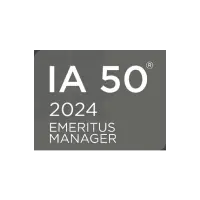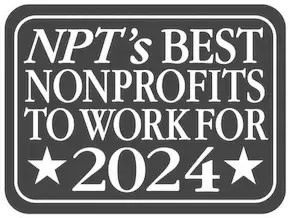Nourish DC: Technical Assistance Helps Food Entrepreneurs Build Their Business Acumen
A strong local food ecosystem is essential to community health and economic prosperity — and in Washington, D.C., food deserts (areas without full-service grocery stores) in communities living with lower incomes are a significant factor in persistent food insecurity. Building local food businesses in underinvested communities can help support healthier neighborhoods, build economic prosperity, and increase access to high-quality jobs.
In 2021, Capital Impact Partners and the Government of the District of Columbia – along with a group of partners – launched the Nourish DC Collaborative, an initiative that supports the development of locally owned food businesses in D.C. communities to create vibrant, healthy neighborhoods.
Nourish DC offers flexible loans, grants, and technical assistance to emerging and existing food businesses. While it serves the entire District, the collaborative focuses on supporting businesses in underestimated neighborhoods, which are more often owned or led by people of color.
In this blog series, learn how food business owners are supporting their local communities and how technical assistance offered through Nourish DC helped them create change.
Culinary skills and a passion for food are often the sparks behind a new food business. But entrepreneurs also need a broad set of skills in administration, operations, marketing, finance, and human resources. Nourish DC supports new and growing food businesses in the D.C. metropolitan area by funding technical assistance (TA) in these and other areas critical to success.
Nourish DC is committed to providing TA that is culturally appropriate, multilingual and responsive to the needs of businesses. Because these needs change over time as a business evolves and matures, Nourish DC aims to be flexible and meet entrepreneurs where they are.
“Each business has different needs, depending on its stage, sector and expertise,” says Alison Powers, director of Economic Opportunities for Capital Impact Partners. “TA for start-ups will lay the foundation for success, but TA is needed at every stage of growth.”
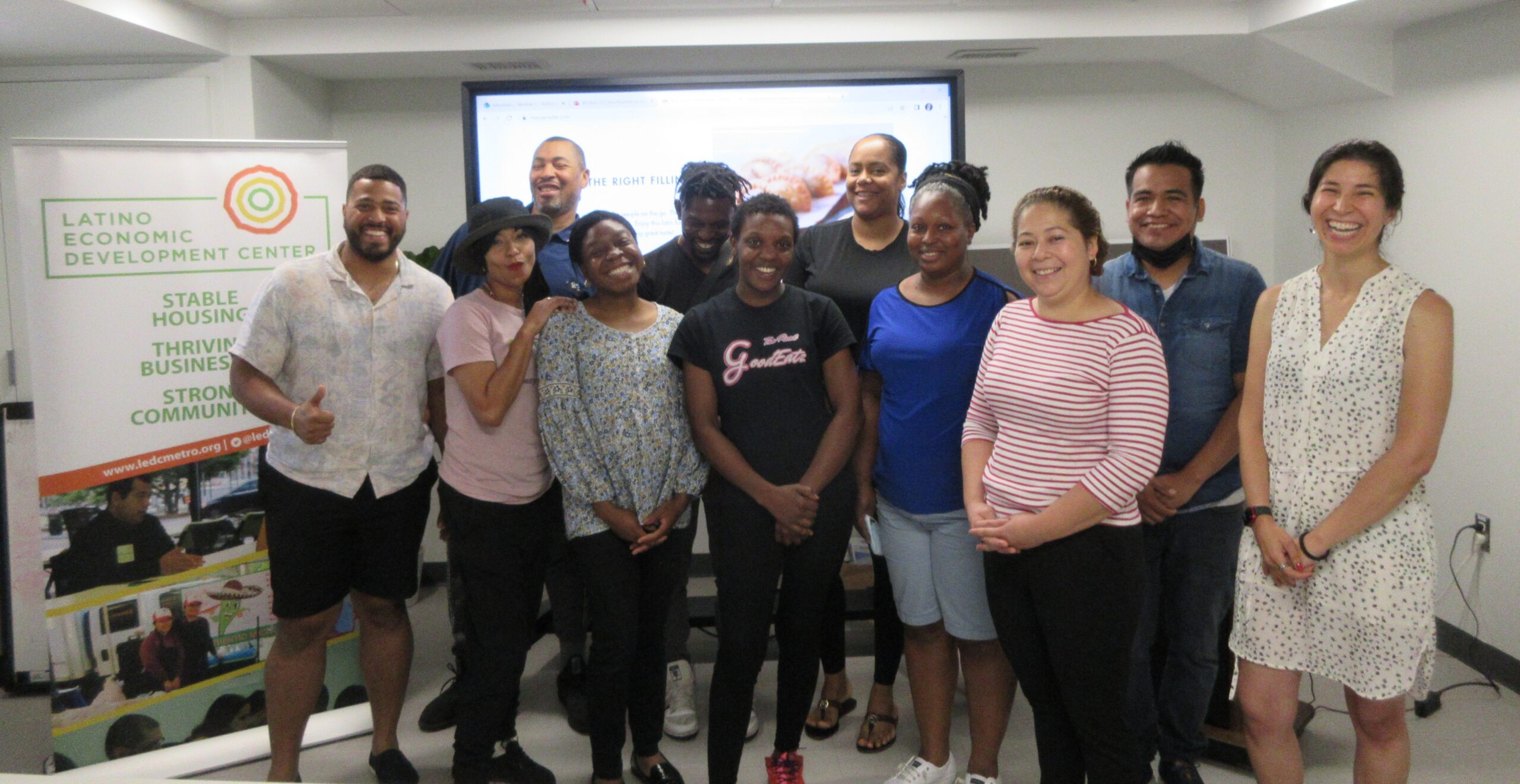
The COVID-19 pandemic added new challenges — such as cost inflation, supply shortages, and a tighter labor market — further fueling the need for TA. “There was already a line out the door for TA,” Powers says. “It doubled as companies grappled with meeting the changes and challenges of the past three years.”
Another important benefit of TA: “Businesses that have received extensive TA are typically more ready for financial capital, such as a loan or grant,” said Powers.
Leveraging the Power of Collaboration to Support Businesses
Nourish DC uses a collaborative structure, bringing together the strengths of mission-driven organizations to support food business owners. The Nourish DC Collaborative partners providing TA – including Dreaming Out Loud, Latino Economic Development Center, Wacif, EatsPlace, and CDC Small Business Finance – have deep community knowledge and connections. A partnership with the Latino Economic Development Center (LEDC) is helping to incubate and launch new food businesses through a robust TA program that includes its Food Venture Initiative (FVI). The eight-month program includes three months of intensive TA followed by five months of access to commercial kitchen space at Union Kitchen, which is subsidized by Nourish DC and Union Kitchen.
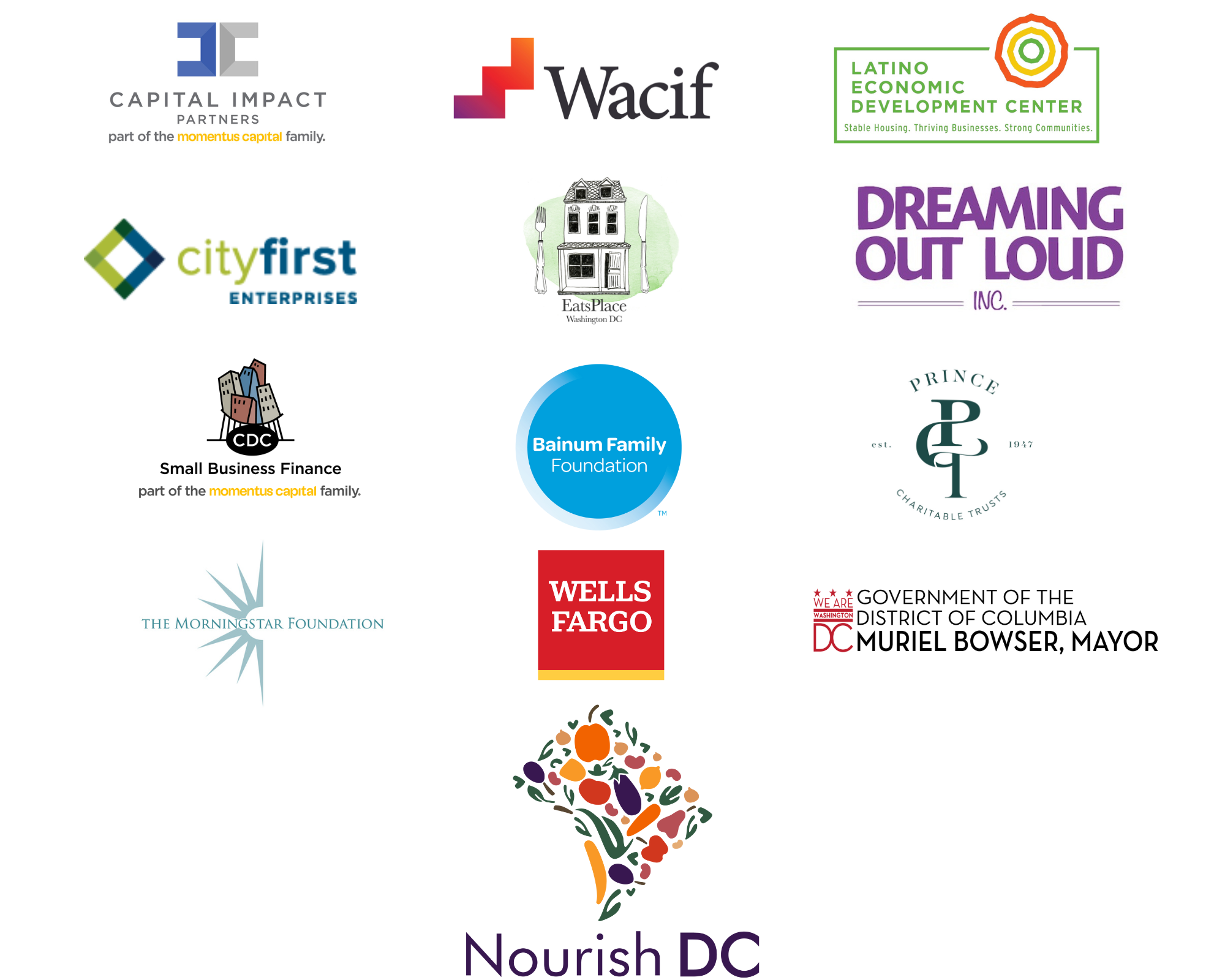
According to Alexandra Samaniego, LEDC’s Program Manager, D.C. for Small Business Programs, 90 percent of LEDC clients are immigrants. If immigrants are not able to find employment, many choose to start a business — typically in the food, construction, or service industries. As a result, she says, there is a huge need for food-industry support. “Most entrepreneurs know how to make food; they need help running the business. We give them a roadmap to starting a food business. Even if they were an entrepreneur in another country, it’s different here.”
From PhD to Small Business Owner
Nigeria native Oluwatobi Osobukola-Abubu was surprised, but excited, to find herself part of the first Food Venture Initiative cohort. Even though her mother was a cook and caterer in Nigeria, Abubu never imagined that future for herself. She came to Washington, D.C., in 2013 for a diplomatic position at the Nigerian Embassy. Already the mother of one (a two-and-a-half year-old daughter, age 2-1/2), she was pregnant with her second child, a son, when she arrived. Once here, she began working on a PhD in African Studies at Howard University, intending to focus on trafficking victims and help them use entrepreneurial skills as part of their recovery.
Abubu’s plans changed when her position with the embassy ended in 2017 and her son, then nearly 5, received an autism diagnosis. She knew she wouldn’t be able to find the support he needed back home, and she was committed to finishing her PhD. She chose to stay in D.C. and find new work with the flexibility to meet her family’s needs.
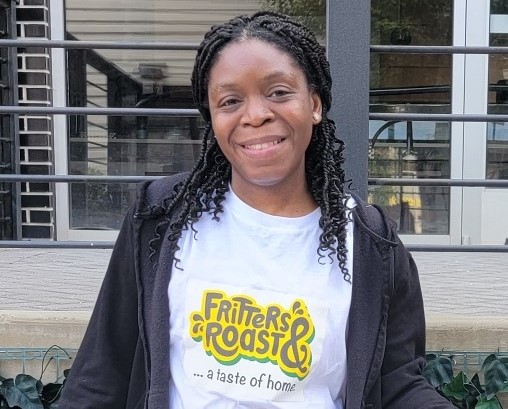
From her time at the embassy, Bubu knew there were few authentic Nigerian food options in the D.C. area. She also knew how much her friends and neighbors enjoyed the home-cooked Nigerian foods she shared generously with them. When the COVID-19 pandemic hit, Abubu began looking for resources to help the small, home-based food businesses she knew. That’s how she connected with LEDC at her local library. LEDC staff were promoting the FVI, and after hearing her story, encouraged her to apply.
Supporting Business Owners with Strong Foundations
LEDC initially provided 1:1 and group TA and training (e.g., webinars) to clients, but now offers more structured support through FVI. LEDC began providing TA in April 2023 to 10 program participants. The participants moved to the commercial kitchen in August and will have access to it through December 2023.
Powers and Samaniego both emphasize the importance of providing commercial kitchen space as part of the FVI program. Access to such space, which is especially critical as businesses begin to scale up, is both limited and costly in the D.C. area — typically around $2,000 per month. That cost either puts it out of reach for food start-ups or consumes the limited start-up capital they have.
According to Samaniego, the organization also hopes to target future TA to two distinct groups of entrepreneurs:
- Those just starting out or in early growth stages who need broad training and support, and
- Those more established who need targeted training and support to address specific business needs.
LEDC hopes to expand the FVI program and offer two sessions each year — one starting in the spring and one starting in the fall.
Building a Food Business from Scratch
Abubu launched Fritters & Roast in 2022. Taking the advice of her LEDC coach, she started small, focusing on simple “finger foods” that are popular in Nigeria, such as bean cakes, banana fritters and plantains. She made them available in quantities suitable for individuals and families. She later added cassava chips and two flavors of a Nigerian hibiscus drink (pineapple/lemon/ginger and watermelon/lime), which has been popular with customers. She holds sampling events and sells her products through farmers markets and online, with plans to create packaged products for retail stores. She also offers catering services.
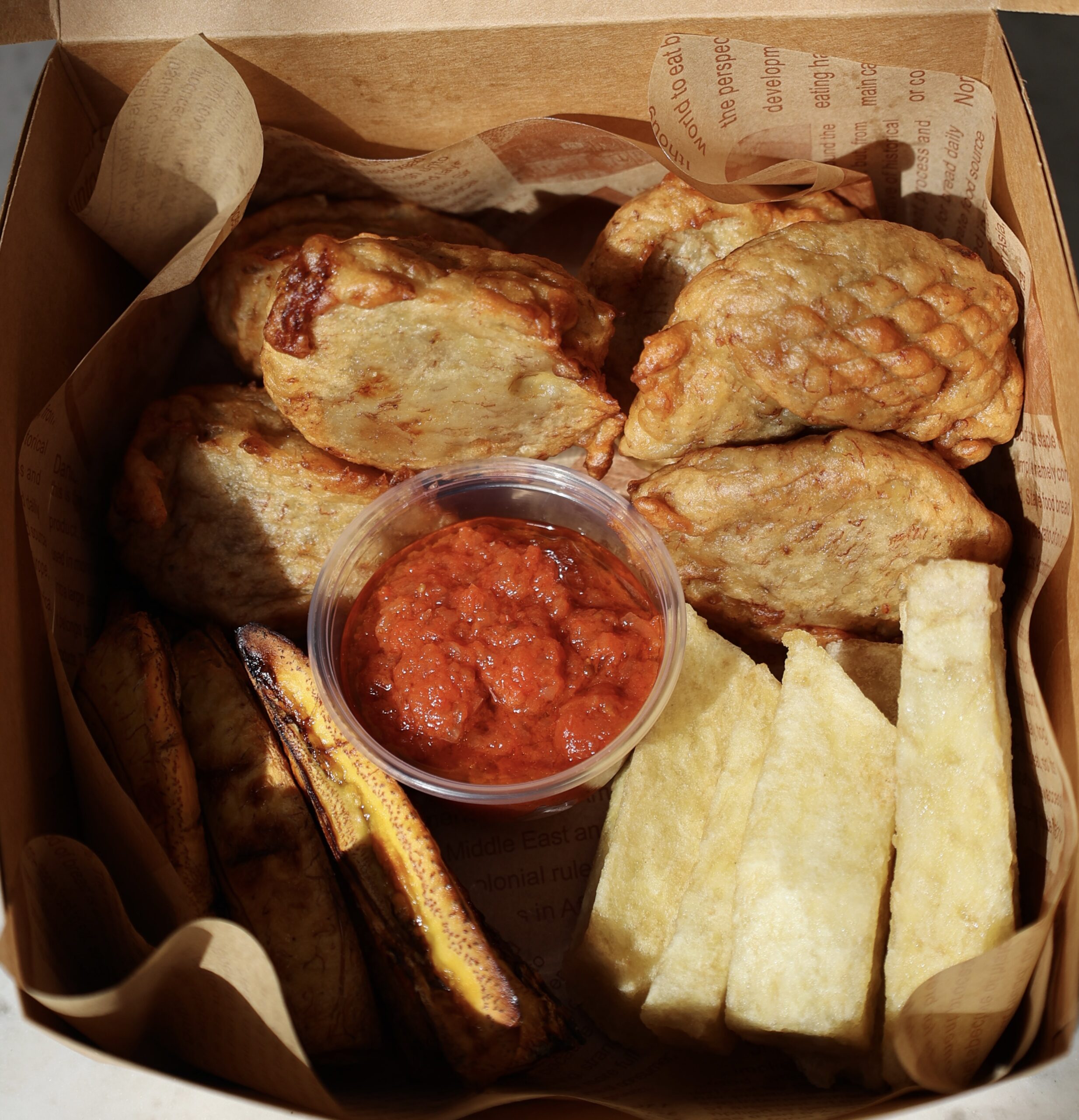
The most challenging aspect was “starting completely from scratch on everything,” Abubu says, including marketing herself and her business. Which is why she values the depth and breadth of support she has received from LEDC — and her friends and neighbors, who stepped in to help test menu offerings, design her logo and menu, and build her website. Access to the commercial kitchen has been valuable in many ways. She appreciates not only the facility but the “ecosystem of support” she is building with other food entrepreneurs.
“I never saw myself as one to do the business myself,” says Abubu, whose children are now 12 and 9. “But LEDC saw that and were able to bring it out. If they hadn’t gotten me into the initiative, I wouldn’t have been able to bring that gift out. That’s the amazing thing LEDC did for me.”


